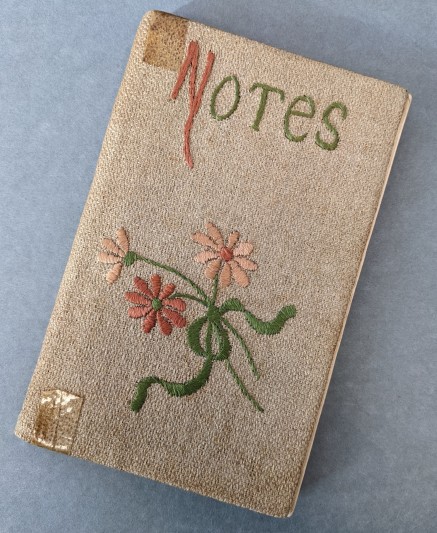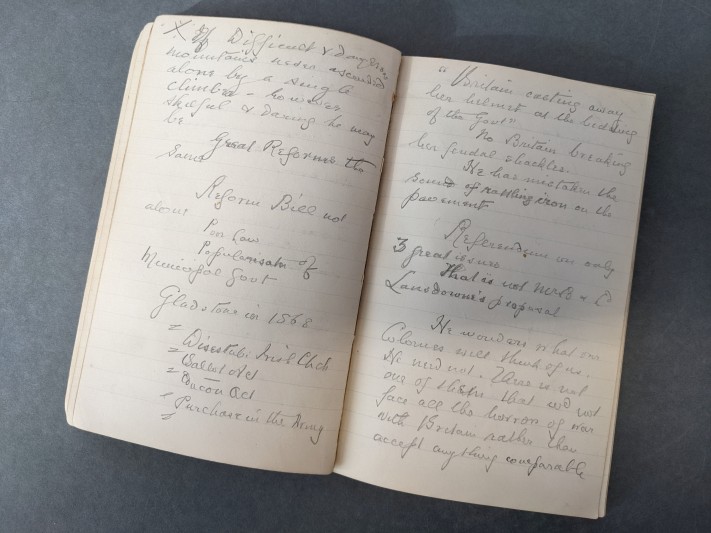Rob Phillips, Archivist for the Welsh Political Archive, writes: David Lloyd George is one of Wales’ greatest politicians. After making a name for himself as a solicitor and campaigner on issues such as land reform and disestablishment of the Church of England in Wales, he narrowly won the Caernarvon Boroughs by-election in 1890. He held the seat, although sometimes narrowly, until his death in 1945.
After his election he continued his championing of radical causes and was appointed to the Cabinet as President of the Board of Trade in 1905 but his real chance to help advance the radical agenda came in 1908 when he was appointed as Chancellor of the Exchequer. In his 1909 budget, known as ‘The People’s Budget’, he brought in a range of new taxes and tax increases to support social programmes including old age pensions and unemployment insurance but the measures were defeated in the House of Lords. Following an election in January 1910, which had been called over the budget question, the Liberals returned to power with Lloyd George continuing as Chancellor and the measures were passed. However, the threat of the Lords to veto similar provisions remained which led to another General Election in December 1910 and ultimately to the Parliament Act 1911, which restricted the power of the Lords to stop Government business. It was during this election campaign that Lloyd George made notes in pencil in this small notebook with a beautifully embroidered cover.
The themes of the election; the people versus the Lords and working people versus unearned wealth are clear in the notes and Lloyd George’s rhetorical flourish conjures up some wonderful images. Talking of the need to fund social programmes, he notes ‘the brilliance of the sun is so blinding that you cannot see the squalor around you’. He defends the tax on wealth gained by property value increases against accusations that he is taxing the working man out of existence both with solid figures and humour noting that as tax would be payable after death and therefore the man would already be ‘out of existence’.
On this issue of the power of the House of Lords and Parliamentary reform, Lloyd George’s notes are equally blunt. In notes for a speech to a Scottish audience he accuses the Lords of having treated them ‘disdainfully’ and suggests putting peers up for a Dutch Auction and asking ‘Will you take them at their own valuation?’
While the notes appear to have been made for campaigns to a Scottish audience, there is some mention of Ireland and Wales, noting especially the political transformation in the latter, which he puts down to education:
‘From 1835 to 1865 Wales was Conservative… when we had few schools and colleges. Since the Education Act 1879 – the great campaign in favour of education – the founding of colleges, the secondary schools…. [Wales is] now overwhelmingly Liberal.’
He is disdainful in his rhetoric around the Conservatives:
‘Two Welsh Tories – fit them both in a wheelbarrow – we shall do so this time and tip them somewhere. Found no use of them’
He uses the wheelbarrow analogy for publicans later in the book. He must have liked it.
The notebook is a remarkable acquisition as it gives an insight into Lloyd George’s thought process, campaigning strategy and his use of rhetoric during while campaigning on issues which were of burning importance to him. It also comes with an interesting provenance, noted inside the cover. It was given by Lloyd George to Alexander Murray MP, Chief Whip of the Liberal Party and passed on his death to his brother Arthur Murray who gave it to Hermione Hobhouse in 1957.
It has been given the number NLW MS 24179 and is available in the Library’s reading room as a valuable addition to the wealth of Lloyd George’s papers already held at the National Library of Wales.

